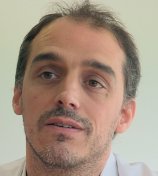Abstract
Since its creation, the IPCC has relied on the scientific community to draw up assessment reports on all scientific, technical and economic aspects of climate change. It has historically been organized into three working groups, dealing with the physical basis of climate change (group 1), impacts, vulnerability of societies and ecosystems, and adaptation options (group 2) and mitigation options (group 3).
As lead author for the last two IPCC assessment reports, for the Group report 1 (in 2013) and for the Group report 2 (in 2022), I will describe how the drafting process is organized and how the entire scientific community is involved. Drawing on some of the key messages of the latest assessment report, in particular that of the 2 group, adopted in February 2022, I will show how the key messages, the consensus around certain important results and the associated level of uncertainty emerge from the authors' work.
I will present the conceptual framework, based on the notions of risk, vulnerability, exposure and adaptability, used in the assessment report of the 2 group. I will show how the experts mobilized by the IPCC determine the main risks associated with climate change for human societies and ecosystems, and how these risks depend first and foremost on the level of future warming and the region of the world under consideration. Finally, I'll look at some of the adaptation solutions put forward in this IPCC report, and discuss the limits of adaptation and the notion of maladaptation.
Laurent Bopp

Laurent Bopp is CNRS Research Director at the Dynamic Meteorology Laboratory of the Institut Pierre-Simon-Laplace. He currently heads the Geosciences Department at the École normale supérieure. His research focuses on the links between climate, climate change and marine biogeochemistry. In particular, he was among the first to use global climate models to explore how anthropogenic climate change could affect marine productivity and ecosystems, as well as air-sea fluxes in the oceans. He is the author of over two hundred scientific publications and has participated in the latest IPCC assessment reports as lead author (2013 and 2022). He was awarded the medal of the Société d'océanographie de France in 2011, and the AGU Ocean Section Voyager Award in 2016, and the Grand Prix des Sciences de la mer de l'Académie des sciences in 2019.
